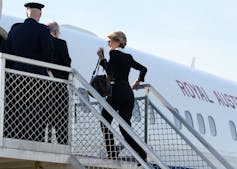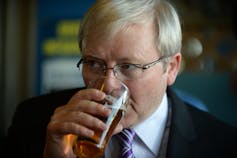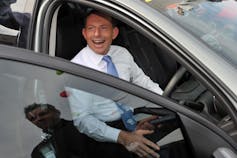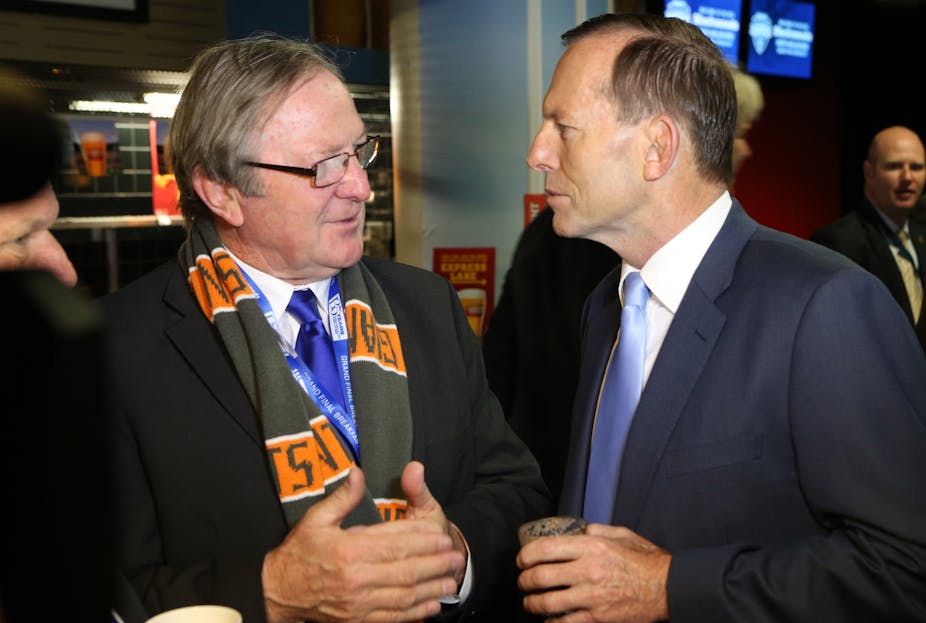Federal politicians can rack up relatively large bills in going about their day-to-day duties. In the last six months of 2012, Julia Gillard had allowances totalling A$647,000 – that’s nearly three times her annual salary. Tony Abbott recorded $530,000, Wayne Swan cost $545,000 and Julie Bishop a cool $390,000.
Parliament provides these allowances to assist members and senators to carry out their duties as elected representatives in their constituencies. They can claim for legitimate “costs” of doing their work effectively and taxpayers meet the bill.
But parliamentarians often refer to these allowances as “entitlements” – as the covering statute is entitled – implying they are entitled to spend these amounts, which are paid on top of generous salaries, often without capping limits on their usage.
So what are they entitled to, and why the confusion?
What are allowances for?
In previous times (decades ago) politicians did not have large entitlement allowances. Their travel to the parliament (federal or state) was usually arranged by the parliamentary staff (rail historically, then flights), and they may have had a small electoral office and a limited budget for mail or landline phones.
But as time went on, the range of allowances was extended to include a whole series of tangible benefits to members – including daily expenses, travel allowances, overnight accommodation, domestic and overseas travel, use of Commonwealth cars, electoral vehicles, hire cars, taxis or subsidised private vehicles, and even unlimited flags and national symbols.

Reviewing the generosity of allowances may not turn out as we might expect. In fact, when reviews of allowances are undertaken they often justify increasing various amounts because of rising expectations about the extent of activity the public might expect, such as representation at overseas functions or fora.
What are the rules?
The rules governing allowances are set down (in law) and are fairly prescriptive in terms of types of allowance and what activities can be claimed: domestic or overseas travel, cars, charter travel, office and administrative costs, telecommunications expenses and purchase of goods and services.
The rules are relatively transparent, require receipts for reimbursement, and are sometimes very prescriptive (members, for instance, cannot claim overnight expenses if scheduled meetings finish three hours before the last flight), and sometimes with fixed annual limits (such as basic electoral allowances, which range from $32,000 to A$46,000).
Since the late 1990s, the rules have been administered by a special section within the Department of Finance – the ministerial and parliamentary services division. It processes claims that are made by ministers and parliamentarians (or their private offices), and can if requested provide “advice”.
But it is not really an arbiter of what is appropriate – and so far as I can discern, only the Remuneration Tribunal can make definitive decisions about the legality or otherwise of proposed claims.
But parliamentarians are notoriously frugal and some are very tight; they’re not averse to getting the taxpayer to pay for their indulgences.
And given recent media coverage some are sailing close to the wind in creatively making claims about their political business. Recognition of this weakness by parliamentarians themselves has led to a rejection of any proposal that oversight should be handled within the legislative rather than executive (within the Department of Finance).
Why the uncertainty?
One of the problems with the present system is that there is no clear definition of what is and what isn’t “parliamentary business” or politicians exercising their rights to interact with their constituents or the wider community.

Going into a pub and shouting drinks can be a community engagement; spruiking a book you have written around the country can be communicating your message to the electorate. Buying books you are interested in owning as a reader can be seen as informing a politician.
Taking holidays to the snow or sunny climes, or visiting desirable foreign cities, can be classified under the nomenclature “parliamentary study tour” to broaden the mind. Many state politicians take regular holidays at taxpayers’ expense and put in silly half-page “report” on what they have discovered (one once remarked that sandwiches were bigger in one state he visited than his home state!).
In one sense, what politicians claim is largely made up of institutional costs: running electoral offices and necessary travel to parliament and so on. But other areas are grey and left open to interpretation, especially optional travel, attendances at sporting or cultural events, purchases of goods or publications, and hospitality.
Where the line falls between personal expenses and parliamentary business is very much down to their own discretion. And unless challenged by the Tribunal, any claims made will be paid within the stipulated limits.
The public could be forgiven for believing that if a politician got away with one bogus claim, it would only encourage them to make even more outrageous claims – and there was not much sanction if caught out or exposed (repayment of the disputed amount).
And if both sides, or all parties, are at fault there is no mileage in exposing one’s opponents for fear of retribution, with notable exceptions when vengeance over-rides consideration of consistent leniency – as in the Slipper case.
So, what’s the solution?
What else could we do to make the system better and less open to rorting?
Making the rules more prescriptive is one option but there are many eventualities to cover and rules can’t cover everything.
Another suggestion is to make politicians pay double if their claims are rejected – but relatively few actually are rejected given the lack of definitional precision.
Another is to pool funds to each party as they currently do with staff entitlements – so the party can prioritise their most preferred expenditures.
Yet another is to establish a specific oversight body. I doubt whether such a body would make all that difference – and could become compromised if it took a hard line against some marginal claims which could be justified (such as appearing at a sporting event).

Schemes to allow politicians to transfer back into salary any residue in nominal allowances is prone to perverse behaviour and politicians hoarding resources.
So finding the appropriate balance is hard to do. Perhaps media spotlight is the best method of control providing the media regularly investigates and publicises excesses.
It’s interesting that many of the so-called abuses coming to light now are very old claims going back some years. The media at the time paid scant attention; and are perhaps only paying attention now when the adversarial politics of recent years has gone off the boil and they are bored with Abbott’s honeymoon period.
Don’t hold your breath over major reforms emanating from parliament on this issue – it is one of their juiciest privileges.

